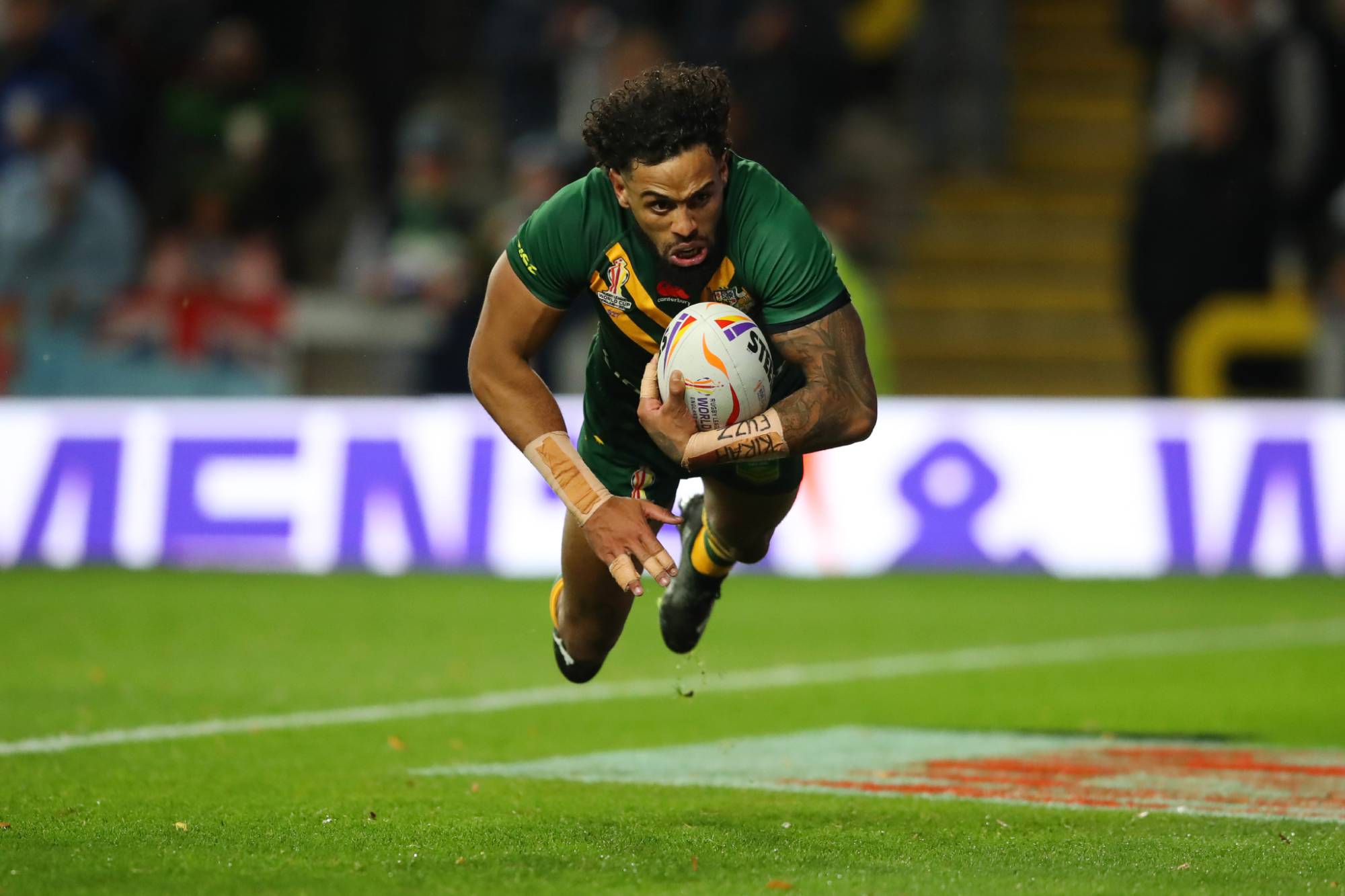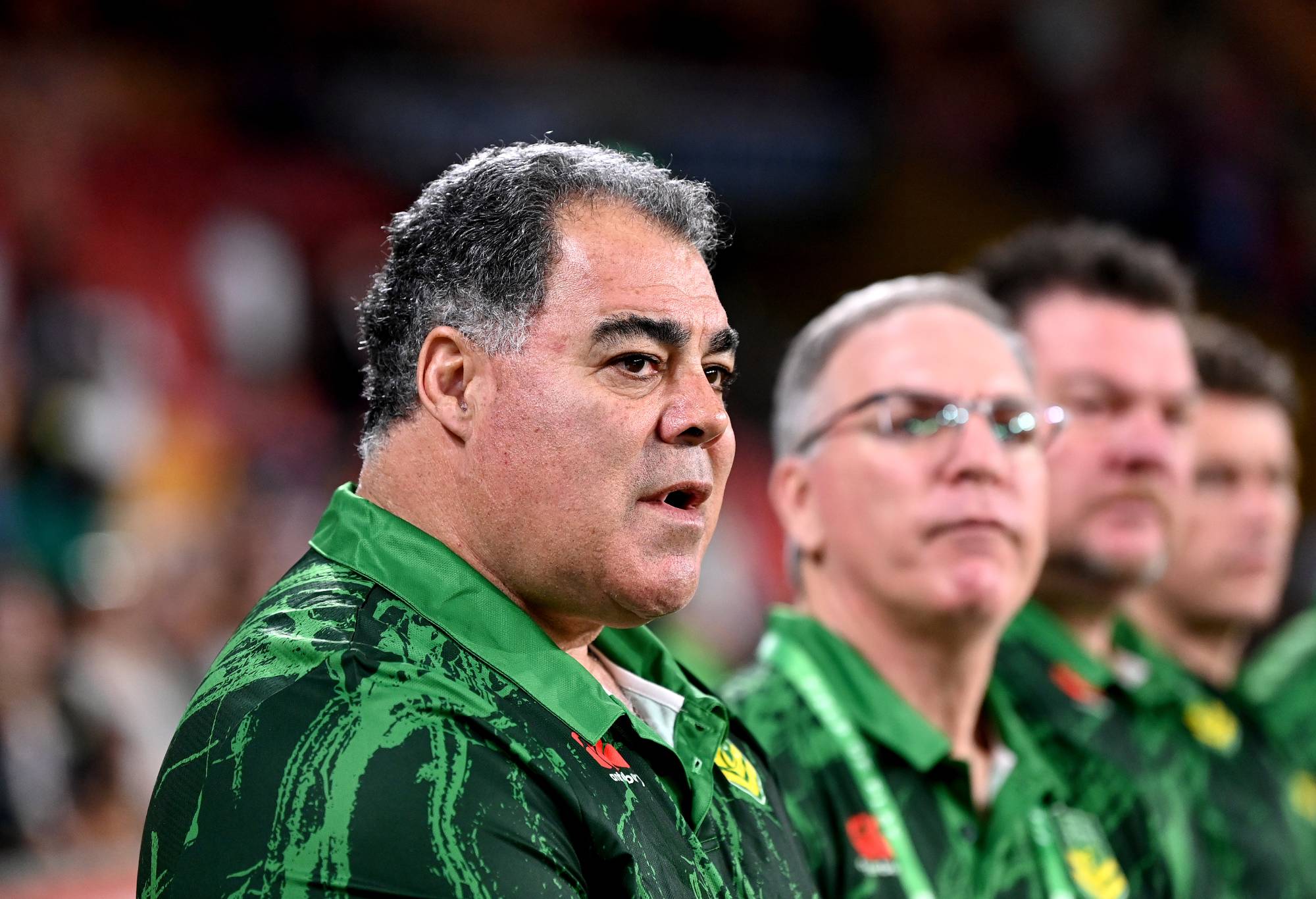It's not un-Australian to cheer against Australia - in fact, in our favourite sports, it is the best option
Australians are among the sportiest people on Earth. Much as we like to play code wars with each other, the fact that we can…
MANCHESTER – Being sent to Coventry, in the English parlance, is not a good thing. It refers to being shunned, ostracized and ignored by the group.
Spare a thought, then, for Daly Cherry-Evans, especially if Nathan Cleary has a stormer against Scotland this Friday evening (Saturday morning AEDT) in the Midlands.
His showing against Fiji wasn’t as good as it needed to be to keep the boy wonder at bay, and though Mal Meninga seems to think that the pair will play together next weekend against Italy, it must be all but certain that DCE will miss out the week after when the chips are down in the knockout stages.
It’s just one of the many questions that have arisen from the rotated squad chosen by Mal to face the Scots. Here’s the questions that they need to answer.
One of the most impressive things about last Saturday night’s victory over Fiji was the combination of Josh Addo-Carr and Latrell Mitchell on the left edge. The pair are great mates off the field and it showed on it with both feeding each other for tries.
The Foxx got two tries, including one off a Mitchell pass, though calling it a try assist might be stretch as it was 95m from the Bati line and Addo-Carr, to put it lightly, still had a bit of work to do. Mitchell’s try owed plenty to the man on his outside, too, with Addo-Carr sprinting away to create the opportunity.
Now, it looks likely that the winger will maintain his place, but this time with clubmate Burton inside him.
Their combination has been one of the standout tandems of the season: even when the Bulldogs were rank rotten, those two were able to manufacture points and line breaks, with the boot of Burton often able to find the flying Foxx in space.
It’s a conundrum for Mal Meninga. Latrell is almost certainly a better player than Burton, but it’s hard to ignore the link that Burton has with his winger, while Mitchell could easily be shifted elsewhere and maintain effectiveness.
The other wing has been rejigged completely. Campbell Graham gets a start on the wing with Jack Wighton featuring inside, replacing Val Holmes and Murray Taulagi – both of whom had a club connection too. Holmes drops to the bench (more on which anon) with Taulagi out completely.
Perhaps the more interesting debate is on that edge. If the Burton/Foxx combo fires in this game, and potentially next week, then there might be an argument that Mitchell can swap sides and Holmes go to wing, where he has excelled in the past.
Often rep footy is a balancing act between maintaining combinations and getting your best players on the park in whatever order works. Mal has the luxury of testing them out, at least, before serious opposition turns up.

(Photo by Jan Kruger/Getty Images for RLWC)
If the squad rotations make sense on the edges, it’s hard to see the through line in the forwards. Mal has at least picked more traditional props with Reagan Campbell-Gillard starting and Lindsay Collins coming off the bench, but he will again be undersized.
That won’t matter against Scotland, but the ramifications down the line are potentially huge.
RCG and Collins will swap places as the big man with Pat Carrigan and Jake Trbojevic the other options in the middle. Angus Crichton, Liam Martin and Isaah Yeo will presumably play 80 minutes given that Ben Hunt and Val Holmes are the other interchanges.
The issue last week was that the pack was on a little on the small size and Mal wouldn’t have learned much from the choices he made.
Come a real match, one would expect it to be RCG and Tino Fa’asuamaleaui starting with some combination of Jurbo, Carrigan and Reuben Cotter off the bench. If you’re the Kiwis, you’re licking your lips at that, because it’s a clear superiority in size in the most important part of the field.
If Australia fail to win the World Cup, it will probably be because they have weakened themselves through poor selection, which comes down to the coach either not choosing well or (more likely, given the two teams picked so far) not knowing who is his best team actually is.
You could list the starting Kiwis 17 now, and bar one game’s worth of rotation in the dead rubber group game v Ireland, they’ll have play every game together. Ditto England, where probably 15 of 17 are already known for any knockout match they might play.
Australia is nowhere near this, and won’t be any closer come full-time this weekend.

(Photo by Bradley Kanaris/Getty Images)
Last week was a good hitout, and certainly, the Kangaroos looked good. They didn’t really have a discernible style, though one might forgive that as they hadn’t played a game in three years.
There’s a lot to be said for the idea that international footy is largely formless anyway, because you never get enough time to build a cohesive unit with so few fixtures together.
Club footy is generally about system over individuals, but international rugby league favours the opposite because it’s more realistic to pick a team and work around it than to craft a distinctive style.
This weekend, we’ll get an idea of what Australia want to do in this regard. They have the constituent parts to play with a middle service in attack – notably Nathan Cleary and Isaah Yeo, around whom the Panthers build their system – and it would be a waste of talent not to do so.
Last week they tried to play through Cam Murray, and his Pass per Run Ration (PPR) – the metric by which you measure how much ball-playing a lock does – was well higher than it is for South Sydney. With Yeo in the side and Cleary alongside him, you’d expect that to continue.
This might be a function of opposition, because with poorer defences and slower line speed, the option for the lock to pass is much better than to run it straight. If the Kangaroos want to groove this system ahead of tougher opponents, then it makes sense to do it more often, too.
But the middle service is heavily predicated on winning collisions and creating that space to play in. Even against Fiji, the post-contact metres total for Australia – which gives an indication of how effective a side was in winning collisions – wasn’t great.
They managed 417 PCM to Fiji’s 340 – though Fiji had far fewer runs – and both were well down on the Kiwis, who managed 538 in their win over Lebanon, and Tonga, who got 480 against a teak tough PNG.
It’s hard to compare after one game against vastly differing oppositions, but the numbers back up my eye test that the Kangaroos are not as strong in the forwards as they need to be.
Post-contact metres will be an interesting stat to keep an eye on and the tournament unfolds.